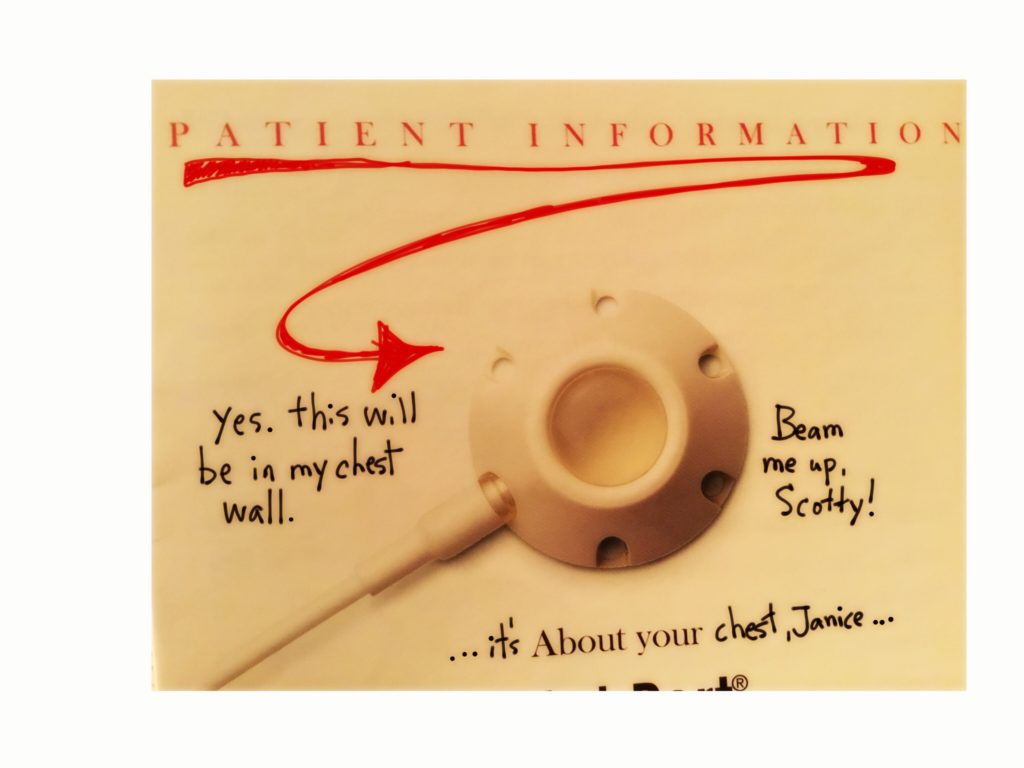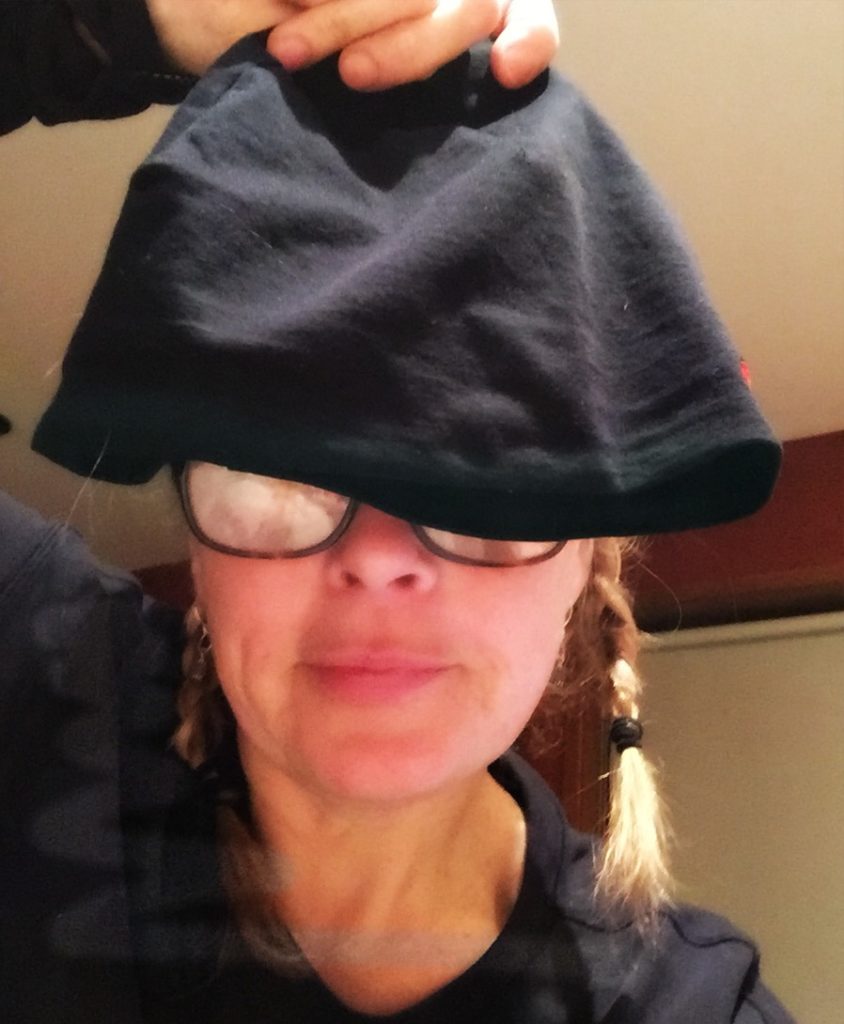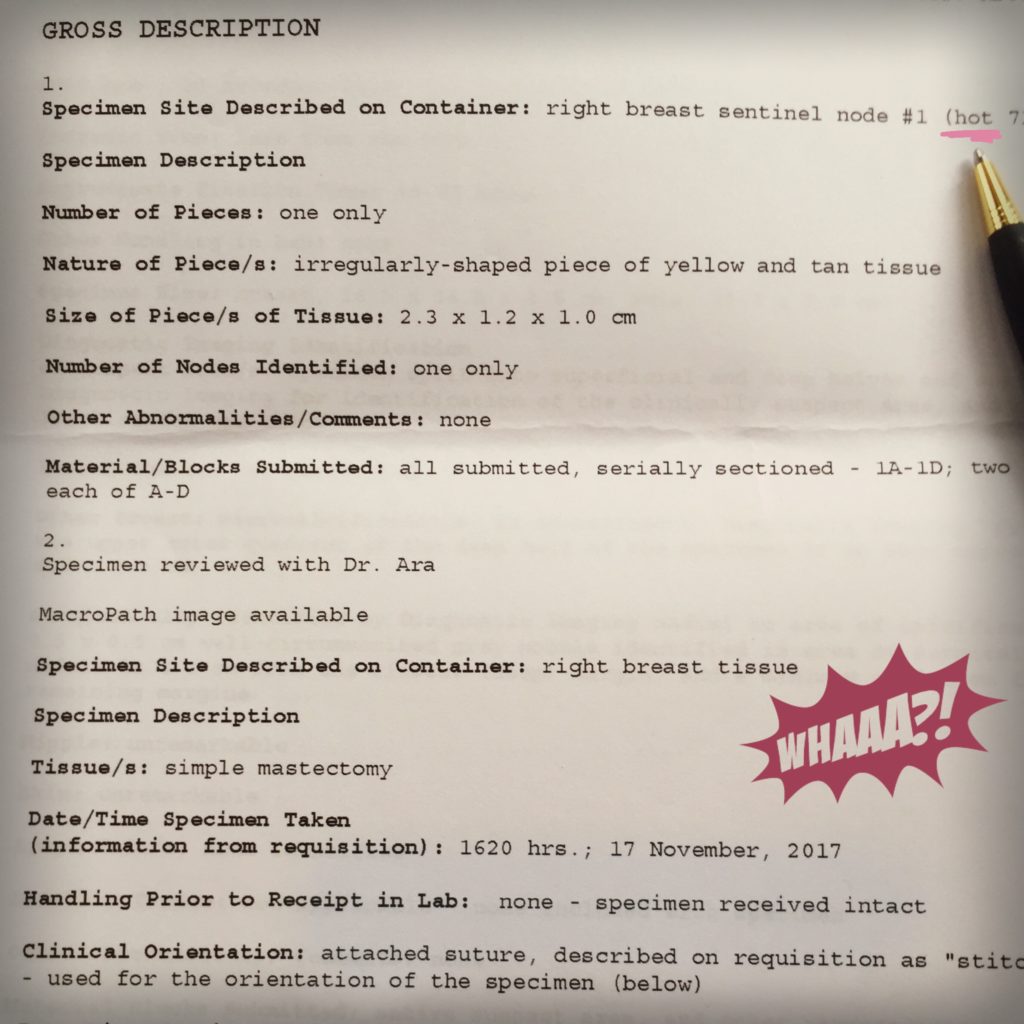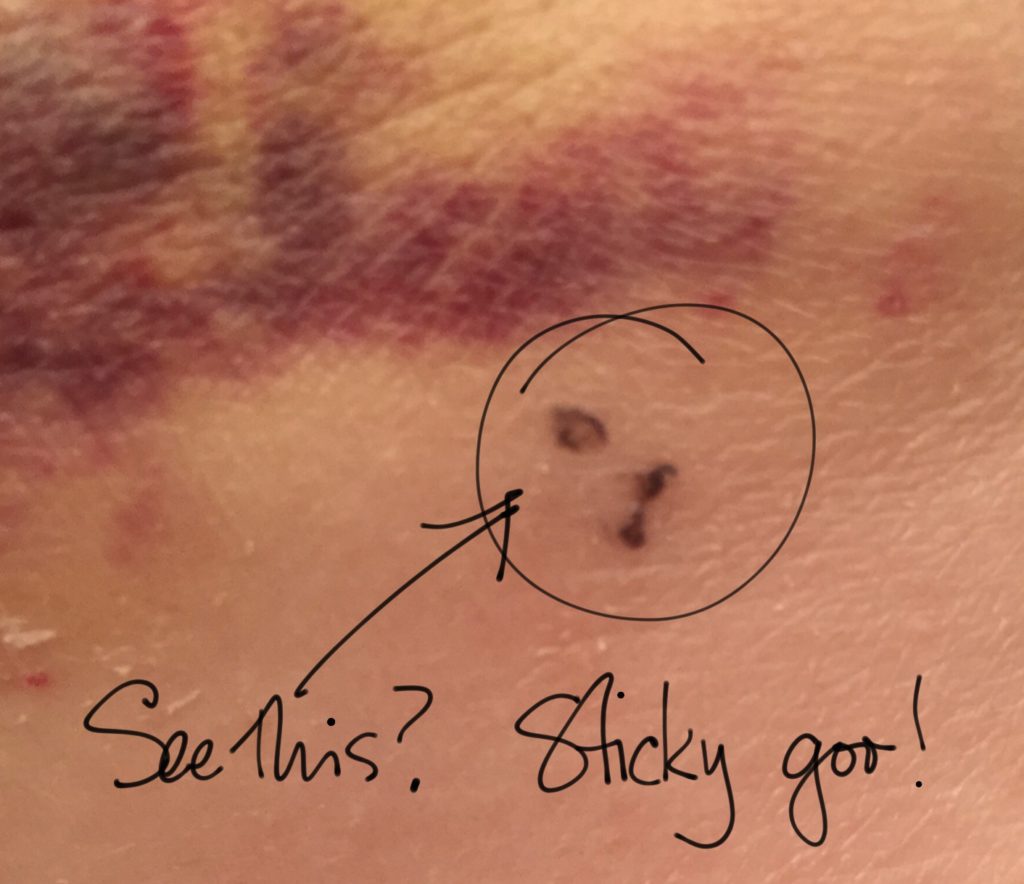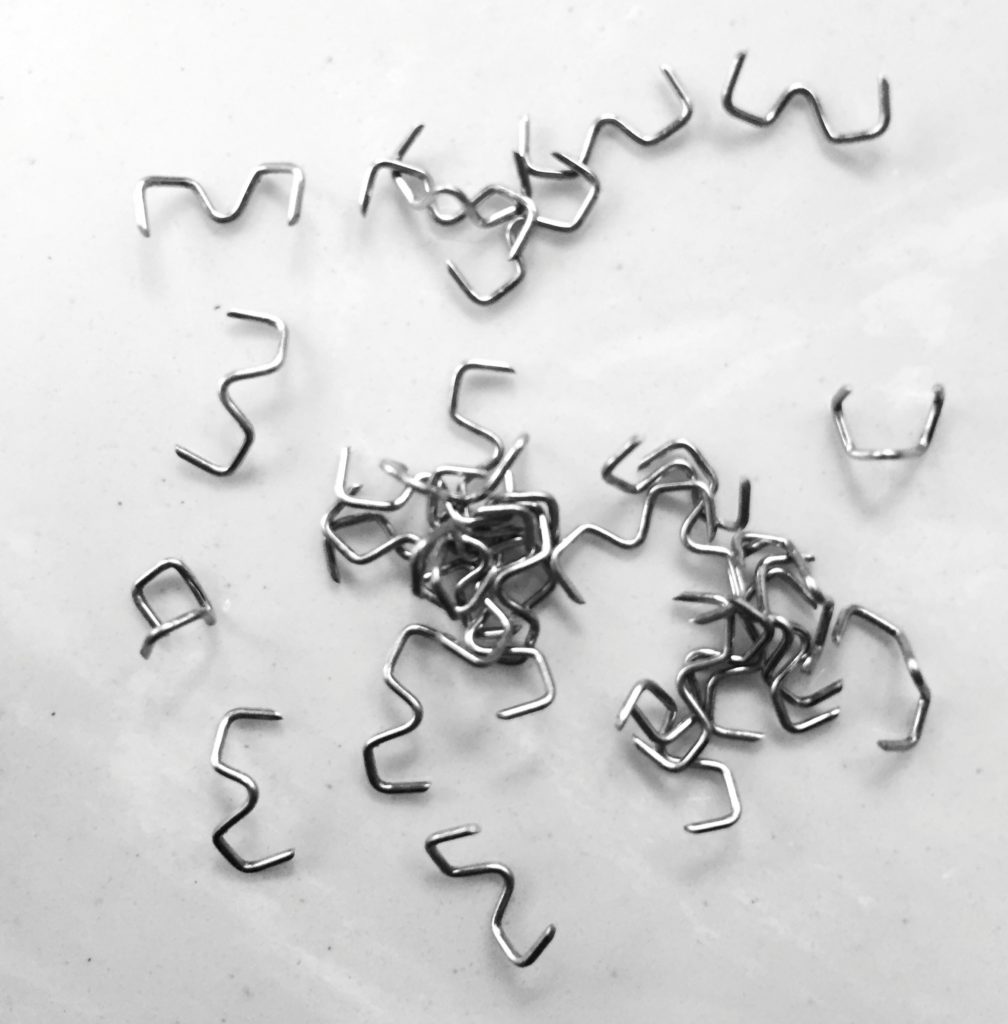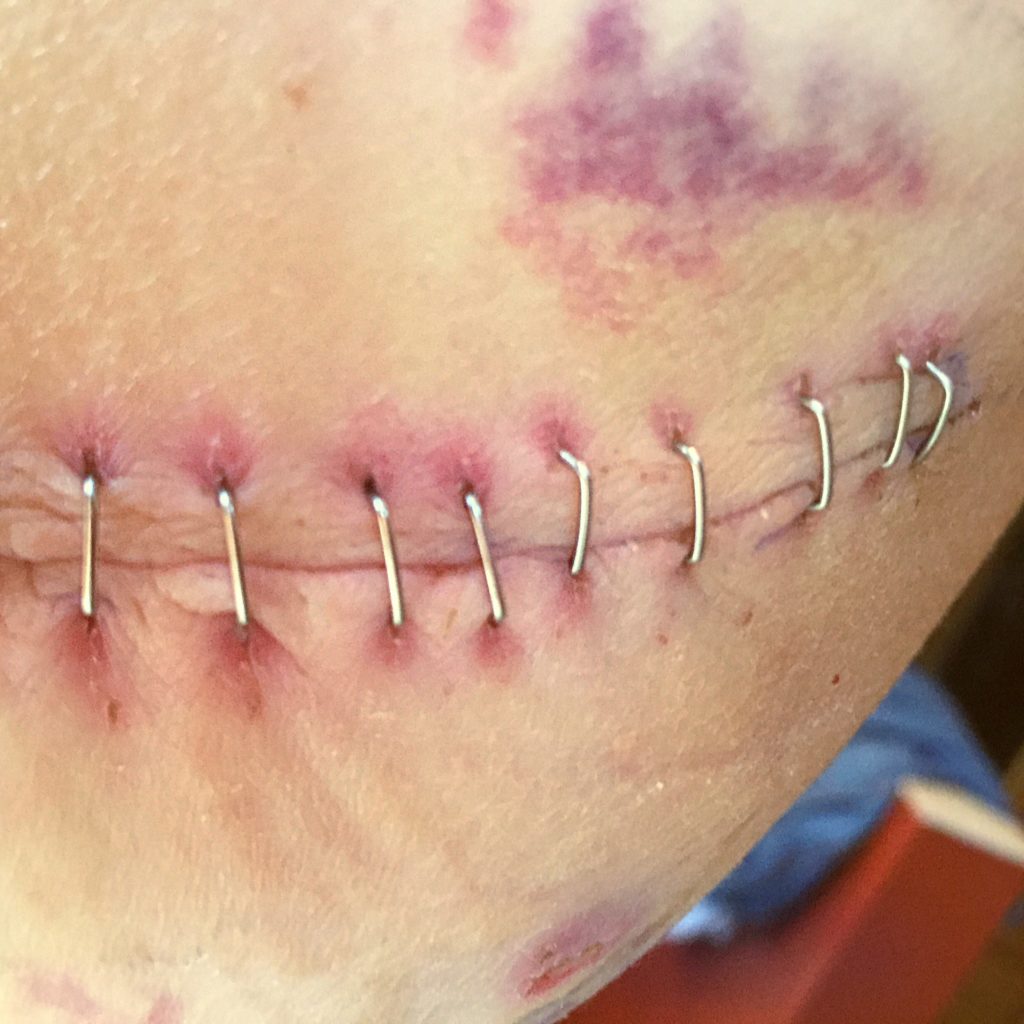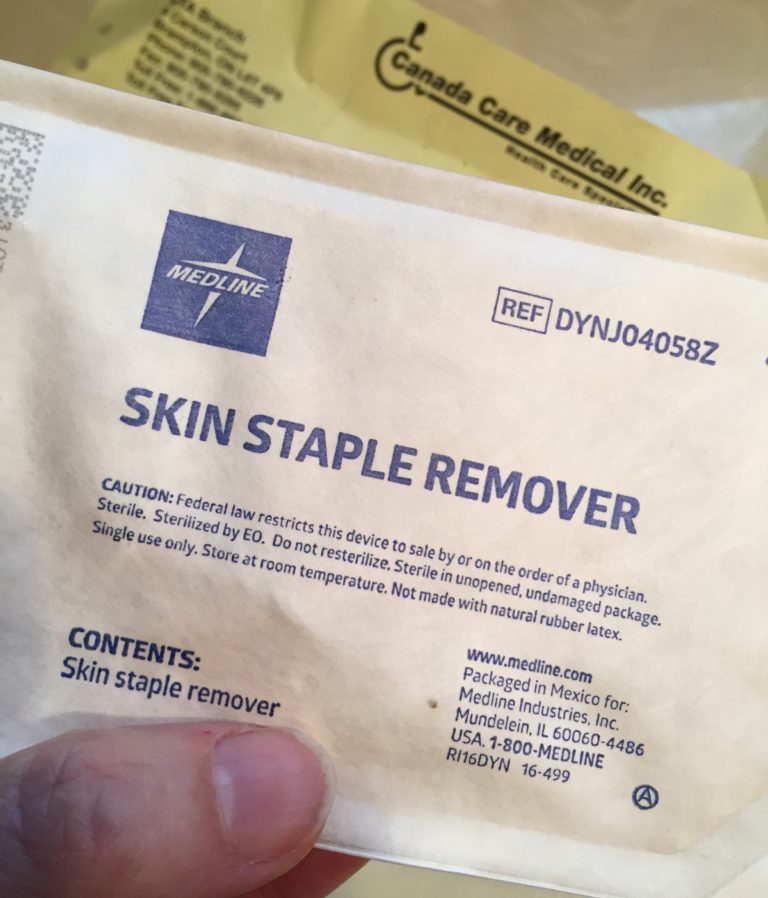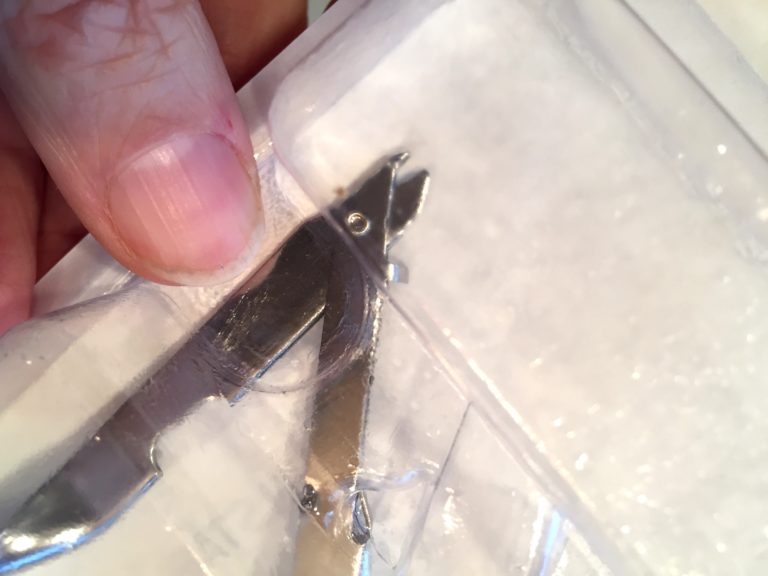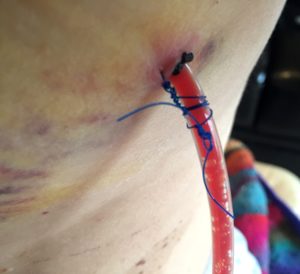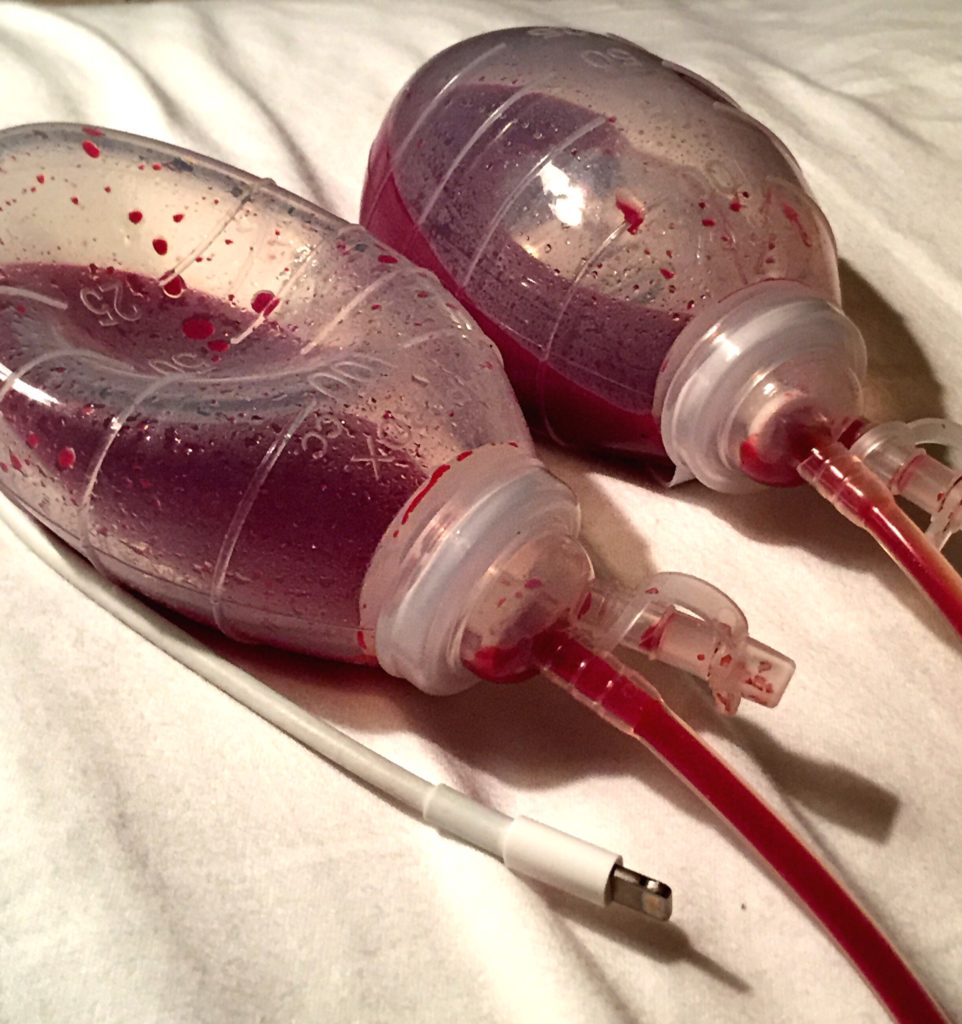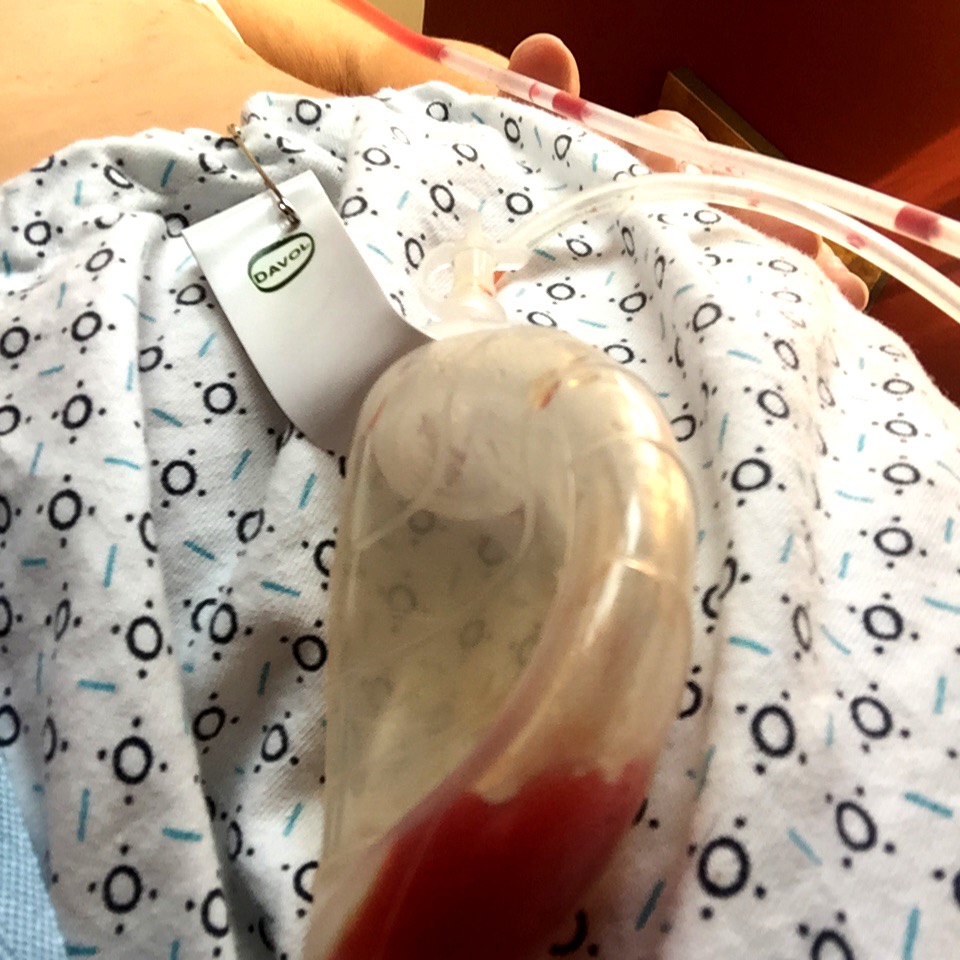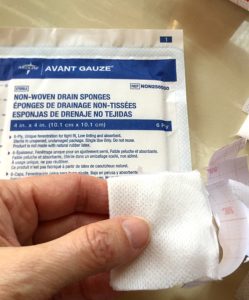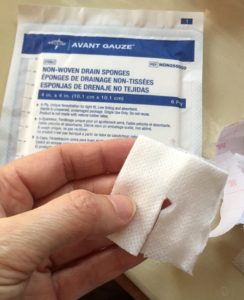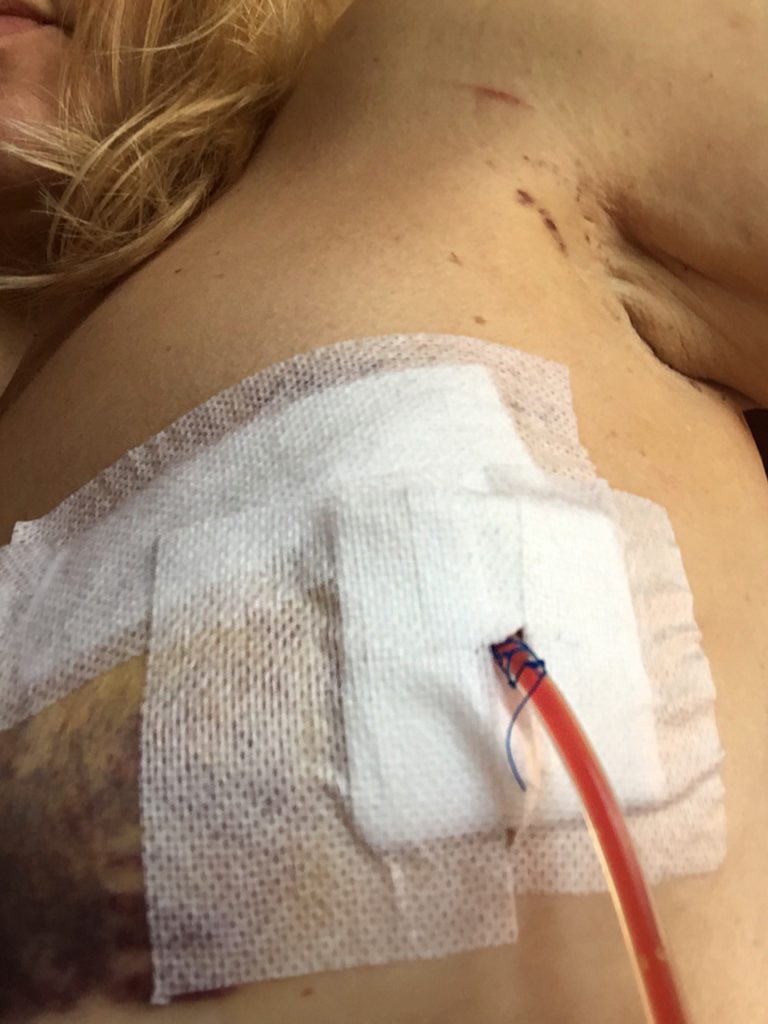Tomorrow I am going to have my toxic drug portal installed. It will deliver all of the nasty chemicals to my cells without any fuss or muss or burning skin. Ahh. How nice! It’s called a portacath, meaning a portable catheter. It’s made up of two parts: a small disk (port) and a long tube (catheter). Hence the name.

Where does it go?
It will be inserted in my chest, just under the clavicle. Each time I go for a treatment – whether it be for the 12 doses of Paclitaxel (chemotherapy) in the first 12 weeks or the Herceptin (the targeted therapy) in the remainder of the year (18 doses) – the drugs will be delivered through the portacath. Nurses can also take blood through the portacath, even though my veins are quite charming and easy to take blood from.

How is it put in?
Usually this procedure is done in Surgical Outpatients and I would be knocked right out, requiring that a breathing tube be inserted. But as I’m obviously an early adopter, I’m having it done in the Diagnostic Imaging department instead with “twilight anesthesia” (yes, I’m the very first one). This means that I will be in a semi-conscious state. No pain, no anxiety, no need for a breathing tube, no memory of what happened. (This last part is unfortunate, because I’d really like to watch if I’m going to be semi-conscious. I have many questions.)
In fact today during my teaching session (in which someone tried to teach me…) I asked the nurse how it’s done and waxed on about my vision of the procedure. She gave me a blank look. All she said was “There are 2 incisions.” Blew apart my whole vision, in which … of course I’m going to tell you … I think that the tube is inserted first – it looks like it has to run up and over the collar bone and then down into the Superior Vena Cava. (Remember that one from Biology class? It’s the large vein that runs in to the heart.) The disk is then attached to the tube, and slid under the skin. A couple of stitches later and it’s all done. But likely that’s not how it happens. If I come out of the twilight I will let you know what I see.
Here is a professional diagram, proving that I am likely very close to being right.

How does it work?
Once it is in my chest, each week the nurse just has to poke the special needle through the skin into the top of the port and start the drip. It’s not inconvenient like a PICC line, which is inserted in the arm and has an external port that you have to look after. Apparently I can sleep on my stomach (although I’m not sure if it will be comfortable) and I can swim with it (you can’t with a PICC line). Plus it will make me look like I have an alien microchip implanted in my chest, and that’s cool.

